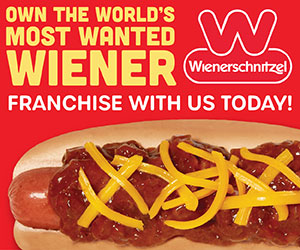Why Franchisors Fail – and How To Help Them Succeed, Part 2
This is Part 2 of a series on why new and emerging franchise brands fail. In these first two parts, we discuss 8 reasons they fail. The following installments will cover what they can do to succeed.
3. Selling franchises to survive
When a franchisor is selling to survive, they make poor recruiting choices and accept franchisees who may be operationally unsound or a poor cultural fit for the business. Some unprofitable franchisors start selling profitable company stores or territories. All these add strain on cash flow and operations and diminish the franchisor's likelihood of success. While this vicious cycle is predictable, these franchisors either fail to see it coming or break from its clutches. After a couple of years, if franchisees aren't making money, they will start listing their businesses for sale. This creates a situation where the franchisor loses good candidates to resales and collects slimmer transfer fees, rather than larger franchise fees. An abundance of resales will spook strong candidates into investing in another, more stable franchise.
4. Lacking the skills and mindset of a successful franchisor
Too often, new franchisors relate to franchising as a distribution or growth strategy, rather than as a business unto itself. They may be excellent at running the operations of their core business but never acquire the skills necessary to become a successful franchisor. For instance, retail chains often run best when the key decisions are made by a small, centralized authority and then pushed out to the organization to be implemented. Franchising is more decentralized and requires more buy-in on the unit level than other models. The more centralized and less collaborative a franchisor becomes, the more franchisee-franchisor relationships suffer and become unworkable. To succeed as a franchisor, a chain must successfully transition its culture from that of a strong centralized authority where all decisions are made at the top to a more decentralized and empowerment culture where more decisions are made at the street level by the franchisees.
5. A "get rich quick" mindset
Some franchisors get into franchising for the wrong reasons, chasing up-front franchise fees or area development fees for quick cash, thinking, "I can sell a widget for $20 or a franchise for $40,000! Or perhaps an area for $100,000!! I choose franchising!" They aren't at all concerned with franchisee profitability. They have little to no operational expertise. They don't know or care about how to make franchisees profitable. They aren't concerned with the long-term viability of their brand. They want to sell as many franchises as possible and then dump the company before the operational problems hit the fan.
6. Running a sprint rather than a marathon
Many beginning franchisors enter franchising thinking they are going to be the next big thing in a few years but aren't capitalized for the long haul. Franchising is a 7- to 10-year play. If would-be franchisors cannot wait the 7 to 10 years it takes to monetize their intellectual property, attain royalty sufficiency, and build significant momentum, they would be better served by opening more company-owned units or territories, which will offer them a better 3-year return on investment. Profitable franchises are often are valued at 6x to 8x EBITDA, instead of the typical 3x EBITDA of a typical small business, which is why smart, well-capitalized, patient franchisors enter franchising in the first place.
7. Overestimating value or demand
At our company, we have a saying: "People don't invest in franchises, they invest in results." In other words, franchise candidates really don't want a franchise - they want their lives, careers, or investments to look a particular way. Your franchise opportunity should be able to bridge the gap between where the candidate is and where they wish to be. If you buy into this logic and consider the thousands of franchise offerings currently available, you will see that almost any outcome a franchise candidate could want can already be satisfied in the universe of current offerings. Bluntly speaking, the marketplace has more than enough franchisors and probably doesn't need yours to improve or expand its breadth of potential outcomes. However, the franchise-buying marketplace will always reward a business that is unique, profitable, enjoyable, difficult for competitors to copy, and that offers franchise candidates an acceptable, predictable, and sustainable return for the long haul.
8. Being ill-prepared
Many franchisors come out before they are "franchise-ready." Perhaps they haven't proven they can replicate their success in other markets, and their unit-level economics are unpredictable or inadequate. They may have underdeveloped systems that are sufficient to get managers up to snuff, but not new franchisees. Many franchisors lack uniqueness and launch knockoffs in an already crowded space, hoping to ride the coattails of the category leaders.
Conclusion
Emerging franchisors can't make too many mistakes recruiting the wrong candidates, choosing bad locations, or ramping up franchisees more slowly than expected before franchisee validation suffers and the brand implodes. They have to come out of the blocks smoking, replicating the original model with results as good or better than the company units or territories that started it all. Franchise buyers typically don't reward what they think is only a good idea. They rally behind great execution and predictable, positive outcomes.
Next issue: Doing it right from Day One.
Joe Mathews is a founding partner of Franchise Performance Group, which specializes in franchisee recruitment, sales, and performance.
Thomas Scott, senior consultant at FPG, is a franchise lead generation specialist and an expert in creating franchise websites, blogging, SEO, social media, and PR campaigns to recruit qualified franchisees. This is an excerpt from their recent e-book. Contact FPG at 615-628-8461 or [email protected].
Share this Feature
Recommended Reading:
| ADVERTISE | SPONSORED CONTENT |
FRANCHISE TOPICS
- Multi-Unit Franchising
- Get Started in Franchising
- Franchise Growth
- Franchise Operations
- Open New Units
- Franchise Leadership
- Franchise Marketing
- Technology
- Franchise Law
- Franchise Awards
- Franchise Rankings
- Franchise Trends
- Franchise Development
- Featured Franchise Stories
| ADVERTISE | SPONSORED CONTENT |

$150,000
$250,000





 The multi-unit franchise opportunities listed above are not related to or endorsed by Multi-Unit Franchisee or Franchise Update Media Group. We are not engaged in, supporting, or endorsing any specific franchise, business opportunity, company or individual. No statement in this site is to be construed as a recommendation. We encourage prospective franchise buyers to perform extensive due diligence when considering a franchise opportunity.
The multi-unit franchise opportunities listed above are not related to or endorsed by Multi-Unit Franchisee or Franchise Update Media Group. We are not engaged in, supporting, or endorsing any specific franchise, business opportunity, company or individual. No statement in this site is to be construed as a recommendation. We encourage prospective franchise buyers to perform extensive due diligence when considering a franchise opportunity.